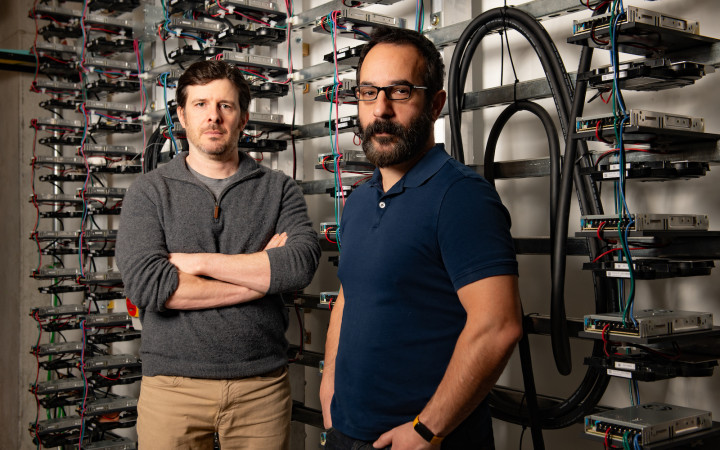New Texas Center Will Create Generative AI Computing Cluster Among Largest of Its Kind

The University of Texas at Austin is creating one of the most powerful artificial intelligence hubs in the academic world to lead in research and offer world-class AI infrastructure to a wide range of partners — the Center for Generative AI.
UT is launching the Center for Generative AI, powered by a new GPU computing cluster, among the largest in academia. The cluster will comprise 600 NVIDIA H100s GPUs — short for graphics processing units, specialized devices to enable rapid mathematical computations, making them ideal for training AI models. The Texas Advanced Computing Center (TACC) will host and support the cluster, called Vista.
“Artificial intelligence is fundamentally changing our world, and this investment comes at the right time to help UT shape the future through our teaching and research,” said President Jay Hartzell. “World-class computing power combined with our breadth of AI research expertise will uniquely position UT to speed advances in health care, drug development, materials and other industries that could have a profound impact on people and society. We have designated 2024 as the Year of AI at UT, and a big reason why is the combination of the trends and opportunities across society, our talented people and strengths as a university, and now, our significant investment in the Center for Generative AI.”
The growth of ChatGPT and similar generative AI technologies has put pressure on many industry groups, health care organizations and public agencies to work with academic institutions to harness AI for innovation. Experts from the center will collaborate with external partners to develop and apply generative AI solutions to challenging problems across industries.
With a core focus on biosciences, health care, computer vision and natural language processing (NLP), the new center will be housed within UT’s interdisciplinary Machine Learning Laboratory and co-led by the Cockrell School of Engineering and the College of Natural Sciences. In recognition of AI’s growth across industries, it also includes faculty members and support from Dell Medical School, as well as researchers from the School of Information and McCombs School of Business.
“We believe academia should continue to play a leading role in the development of AI,” said Alex Dimakis, director of the center and professor in the Cockrell School’s Chandra Family Department of Electrical and Computer Engineering. “Open-source models, open data sets and interdisciplinary peer-reviewed research is the safest way to drive the upcoming AI revolution. Universities are uniquely suited to shape this ecosystem, and we are excited to be on the frontier of generative AI here in Austin.”
Read the Center for Generative AI press release from UT News